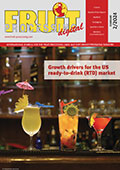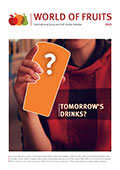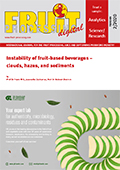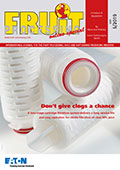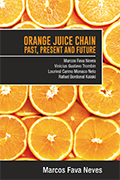GNT Group Opens Affiliate In The Middle East
‘As people are getting increasingly conscious of food additives, the demand for natural ingredients is growing strongly and…
 ‘As people are getting increasingly conscious of food additives, the demand for natural ingredients is growing strongly and this will soon be further supported by stricter legislation in the GCC. Servicing our clients locally in the Middle East, enables us to directly support them with any technical/application challenges and provide innovative solutions that fit perfectly with consumers expectations for a natural colour. I am very excited to join GNT, the market leaders in fruit and vegetable colour solutions, I see a great opportunity to support the manufacturers in GCC in meeting the developing needs of the market’, says Santhosh Thankappan, Sales Director at GNT Middle East.
‘As people are getting increasingly conscious of food additives, the demand for natural ingredients is growing strongly and this will soon be further supported by stricter legislation in the GCC. Servicing our clients locally in the Middle East, enables us to directly support them with any technical/application challenges and provide innovative solutions that fit perfectly with consumers expectations for a natural colour. I am very excited to join GNT, the market leaders in fruit and vegetable colour solutions, I see a great opportunity to support the manufacturers in GCC in meeting the developing needs of the market’, says Santhosh Thankappan, Sales Director at GNT Middle East.
Gulf Countries will bring in warning statements for four artificial colours
Food and beverage manufacturers located in the GCC region; Saudi Arabia, UAE, Qatar, Kuwait, Oman, and Bahrain, need to prepare for upcoming major regulatory changes: the Gulf Cooperation Council (GCC) recently published a new legislation GSO 2500/2015 relating to the use of food additives, in order to better comply to international standards. According to the regulation, it will be mandatory for food and beverages containing the colours Allura Red AC (INS 129), Sunset Yellow (INS 110), Azorubine (INS 122) and Tartrazine (INS 102) to have the warning statement ‘this material may be having a negative effect on activity and concentration of children’. These colours are not unknown: they belong to the so called ‘Southampton Six’ – which hit the headlines when a 2007 Southampton University study linked their usage with hyperactivity of children. In the European Union, a similar warning has been mandatory since 2010.
Switching to clean-label brings advantages
‘For food and beverage producers, today there is no need to use any additive food colours and especially those requiring a warning statement. To impart their products with stable and vibrant colours, they can easily replace them with entirely natural fruit and vegetable colour solutions. Manufacturers should now use the opportunity to review their formulations and find alternatives that better meet consumers’ expectations’, says Santhosh. They are exclusively made from fruits, vegetables or edible plants and are processed using gentle physical methods such as pressing, chopping and filtering – no artificial additives, chemicals or organic solvents are applied. It is therefore not necessary to declare any E-numbers or make warning statements. Furthermore they are certified for the production of halal foods and are suitable for vegetarian diet.
With a local Middle East office in Dubai, GNT can support manufacturers in the region even better with regard to the upcoming legislation and assist in switching from colourants to Colouring Foods. The application experts give advice and support throughout the entire product development process and provide a tailor-made solution that delivers the desired hue and colour intensity for the application in question. As the pioneer in the field of Colouring Foods, with more than 35 years of experience, GNT can offer the biggest range of shades on the market – for nearly every product category. ‘With our longstanding knowledge and expertise in Colouring Foods we support our clients finding future-proof colour solutions for their products – by combining brilliance and stability with naturalness and clear label products. Manufacturers will benefit: they can much better meet the growing demands of todays’ nutrition-conscious consumers that want to know what’s inside their foods.’



